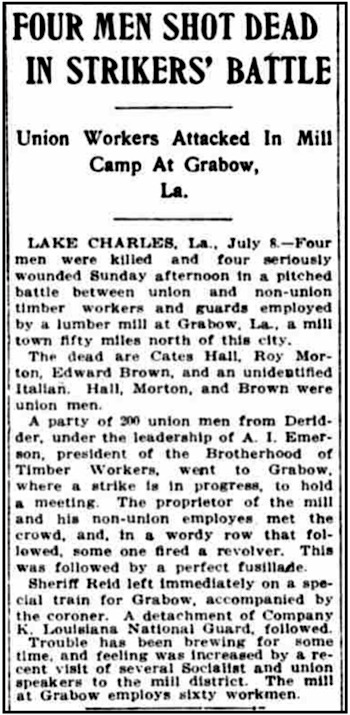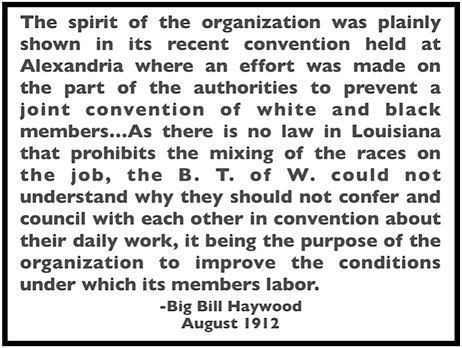 —————
—————
Hellraisers Journal – Friday August 2, 1912
Lake Charles, Louisiana – A. L Emerson, President of B. T. W., in Jail
From the International Socialist Review of August 1912:
[Part I of II]
A. L. EMERSON, President of the Brotherhood of Timber Workers, is in jail at Lake Charles, La. He was arrested following the shooting at Grabow, La., where three union men and one company hireling were killed outright and nearly two score of men were more or less seriously wounded.
The shooting is the outcome of the bitter war waged against the members of the Brotherhood of Timber Workers by the Lumber Trust for the last eighteen months. The scene of the tragedy that occurred on Sunday, July seventh, is a typical Southern lumber camp. The mill at this place is operated by the Galloway Lumber Company. In common with all others, it is surrounded by the miserable houses where the workers find habitation, the commissary store of the Company being the largest place of business in the towns. A strike has been on at this place since the middle of last May. The single demand on the part of the union men was for a bi-weekly pay day. Heretofore the pay days have been at long intervals-usually a month apart.
During the intervening weeks, when the men were in need of money to meet the necessities of life, they could secure advances on their pay but not in real money. They were compelled to accept Company Scrip payable only in merchandise and exchangeable only at the company commissary. If accepted elsewhere it is uniformly discounted from 10 to 25 per cent on the dollar.
In the commissary stores where the cash prices are always from 20 to 50 per cent higher than at the independent stores, the company has established another means of graft by making two prices-the coupon or scrip price being much higher than that exacted for real cash.
The conditions at Grabow can be used as an illustration of nearly all of the other lumber camps of the South.
The commissary store is not the only iniquity imposed upon the Timber Workers. For miserable shacks they [are] compelled to pay exorbitant rents; sewerage there is none; there is no pretense at sanitation ; the outhouses are open vaults. For these accommodations families pay from $5 to $20 a month. In one camp worn-out box cars are rented by R. A. Long, the Kansas City philanthropist, for $4 a month. Insurance fees are arbitrarily collected from every worker, for which he receives practically nothing in return, but whether his time be long or short-one day or a month-with the company, the fee is deducted. The same is true of the doctor fee and the hospital fee, which, in all places, is an imaginary institution. The nearest thing to a hospital that the writer saw was an uncompleted foundation at DeRidder, the place visited a few days prior to the Grabow tragedy. The gunmen and deputy sheriffs are an expensive innovation in the manufacture of lumber. These miserable tools are to be found everywhere and are used to browbeat and coerce the workers.

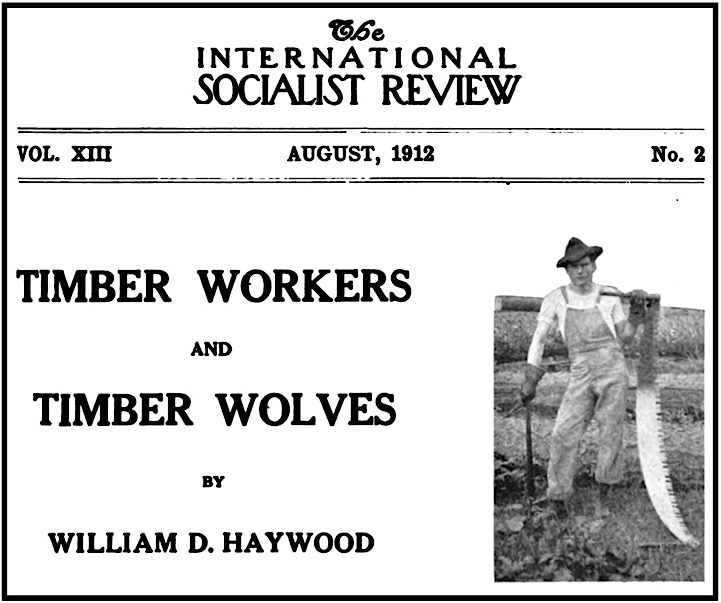
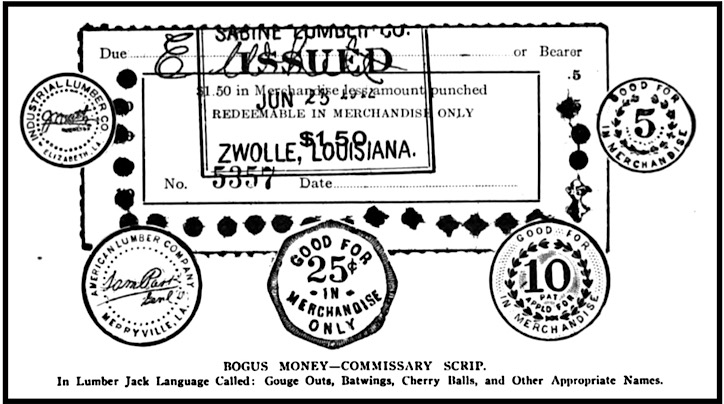
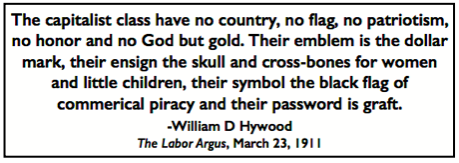 —————
—————